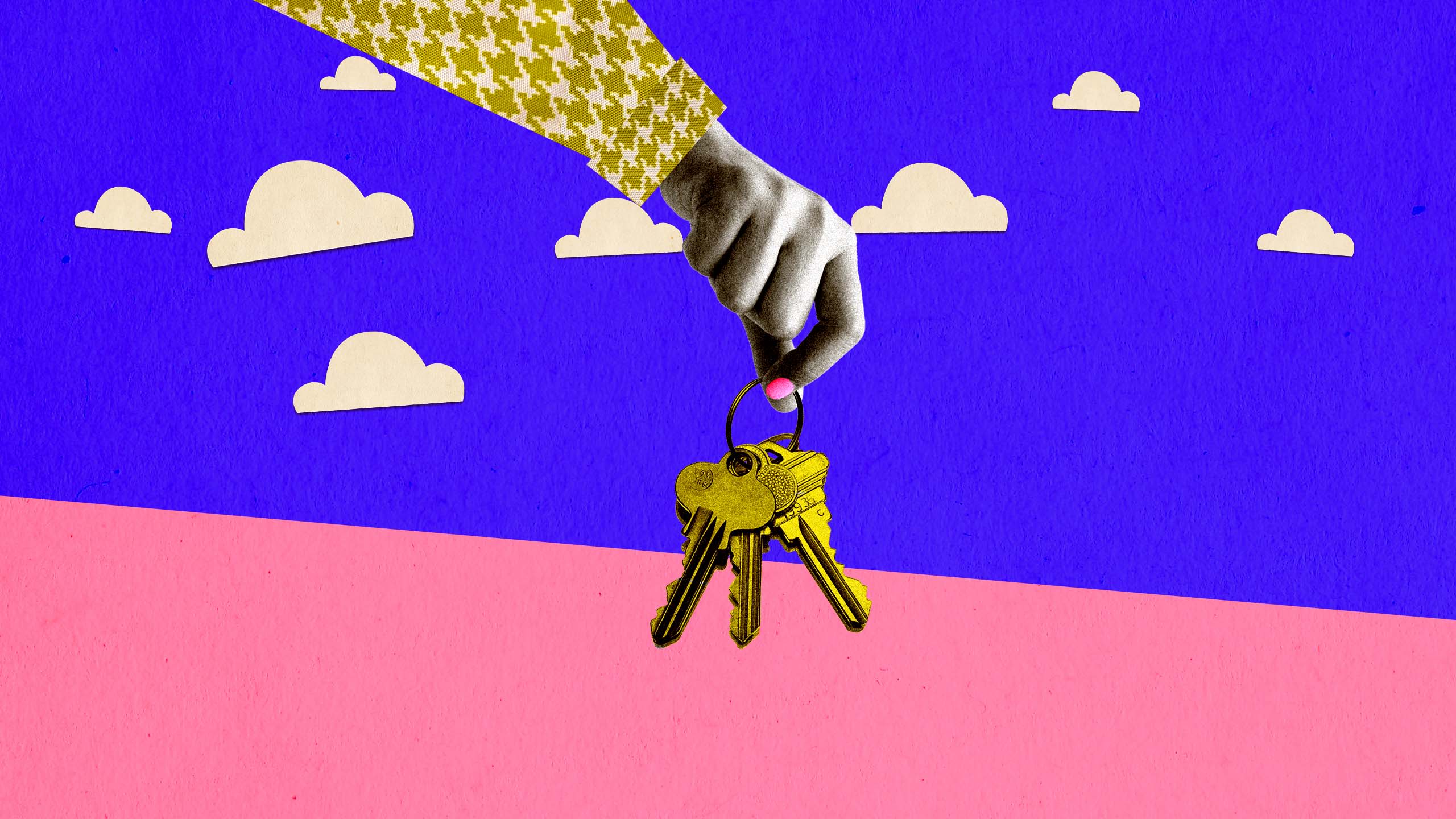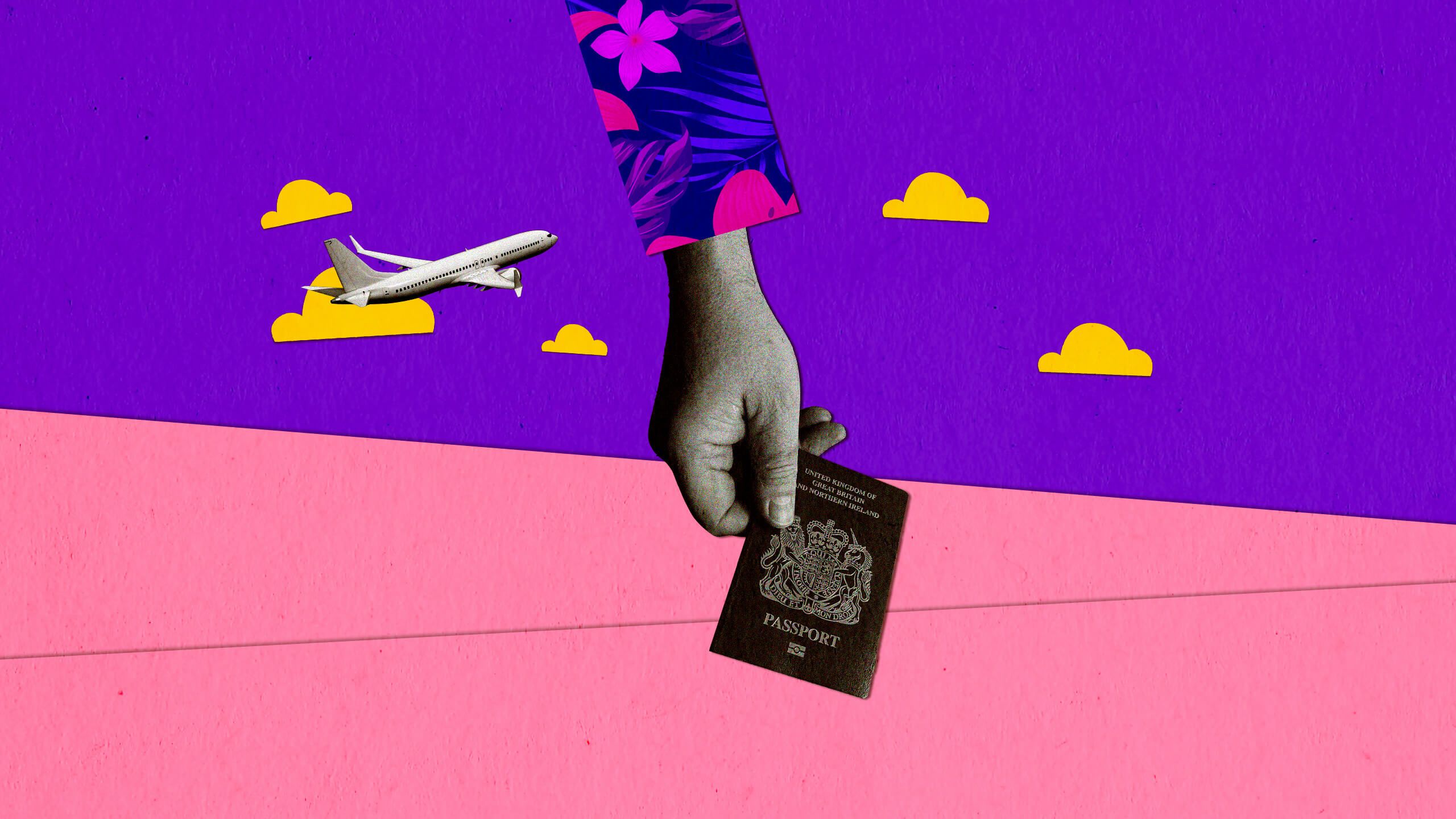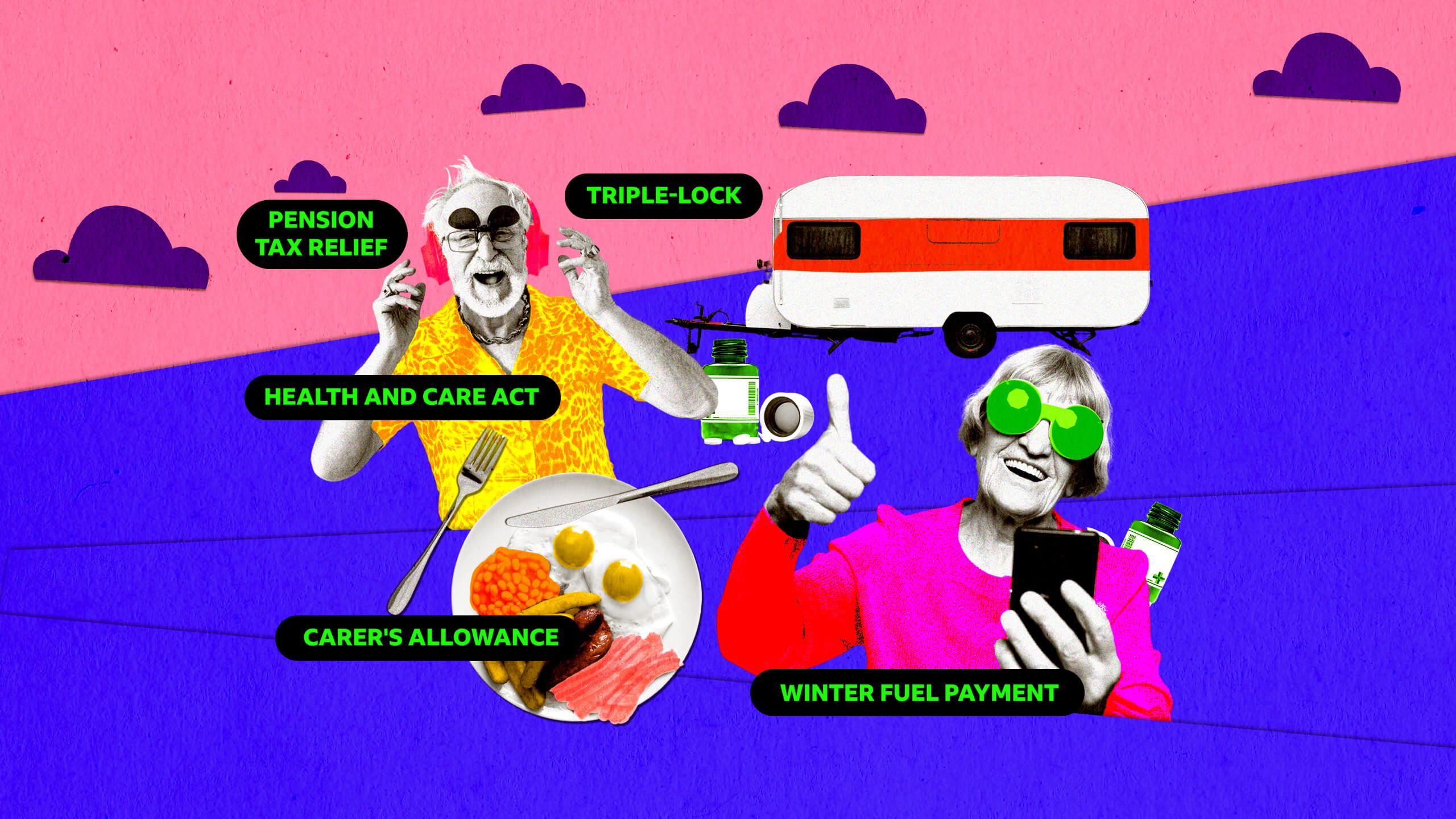WHY VOTE?
HOW ELECTIONS AFFECT YOUR LIFE

Are you one of those people who say they don’t do politics? You’re not alone. Based on recent election turnout, up to a third of British citizens may not use their vote on 4 July.
The British Social Attitudes survey reports trust in government and politicians is “as low now as it has ever been over the last 50 years”.
MPs shouting in parliament, committee hearings, green papers, white papers – it can all feel very distant from daily life.
But politics isn’t something that only happens in Westminster. It’s there whenever you sigh at the cost of a cuppa, put off paying a bill, celebrate a new job, move home or just wonder about the future.
Because politics is the constant conversation we have as a country; about the things we believe, the things we know, the things that happen to us - or others - and the things we fear might happen.
Politics is everyday stuff.
So do you really not do politics? Maybe some of the things you carry around each day tie you to Westminster in ways you wouldn't expect.
As you scroll, we'll highlight the connections between your life and the politics that affect you, recommending relevant BBC News stories to help you learn more.






Let’s start with the keys in your pocket
Do you own or rent?
Are you happy or is it time to move?
Do we need more housing?
Should the government help build it?
On average, more than a quarter of household disposable income in the UK is spent on housing.
The number of houses and apartments built each year, and how easy it is to find a home, are both strongly influenced by government policy.
Parties promise things like: annual housebuilding targets, help to buy, affordability measures, changes in planning laws, a right-to-buy, stronger rights for tenants, and rent controls.
Politicians have to decide how to balance the needs of homeowners, renters, landlords and property developers, and how much of the planning and building should be left to local councils.
- Read more on subject: Where are the most new homes being built?





You might have a bank card
How much is left each month after bills?
How have you coped with rising prices?
Should there be more help available?
The rise in the cost of living has put many household budgets under strain.
Most political parties hope to persuade voters that their plans will grow the economy and help ease financial pressures on ordinary people.
But sometimes people need additional help to make ends meet. The state can offer this help in many different ways: unemployment or working benefits, child benefits, disability payments, housing benefits, energy payments, tax credits, or pension allowances.
How much money these benefits add up to and, who qualifies and who doesn’t, and who pays for them is up to the party in government.
If you receive any of these payments, or have friends or family who do, then your choice of whether to vote and who gets your vote could have a direct effect on their quality of life.





You've had a migraine
How long will you wait to see a GP?
Do you worry about NHS waiting times?
Can your friends and family get the treatment they need?
The NHS consistently ranks in the top three most important issues for voters at a general election.
However, the responsibility for healthcare is a devolved issue in the UK. That means the Scottish, Welsh and Northern Ireland governments are responsible for healthcare services in their nations - including the NHS.
However, the UK government does have direct responsibility for the NHS in England, including setting the annual budget, paying doctors and nurses, and targets for things like waiting times.
New hospitals, more nurses, more patient choice, faster treatment, and wider access to private treatment are all things that have been promised by previous governments.
- Read more: The problems facing the NHS





You love your smartphone
Do you have apps for banking, social media and private messages?
Ever worry how much of your data is being shared online?
Should companies be made to protect people's privacy?
Digital technologies - like apps and social media - are now a key part of people’s lives.
As a result, political parties often talk about ensuring everyone has equal access to the benefits of a digital economy.
At the same time, they also promise to help protect people from the possible downsides of being online. Data leaks, scams, grooming and online bullying have all been the focus of government regulation.
What you - or your children - can do online; what companies can do with your data; who is responsible if it's stolen or you're ripped off – all this is determined by laws voted on in parliament.
- Read more: What is the Online Safety Bill?




You enjoy a coffee
Do you care where it comes from? Or buy fair trade?
Should we be supporting farmers here and abroad?
Will climate change affect food prices or availability?
The UK produces around 60% of its own food, but that still leaves a lot to import.
The government can encourage those imports with trade agreements, making your weekly shop cheaper with a wider variety of products.
Parties disagree on the right balance between support for UK farmers, more sustainable farming, environmental impacts, food security, climate change targets, cheap imports, supermarket monopolies, and the cost of food.
How you decide to spend your money on food can have a direct impact - if you’re in a position to choose. But if these issues are among the most important to you, then your vote can also help change things.
- Read more: A simple guide to climate change





You've booked a holiday
Have you ever thought of living abroad?
How many people from abroad should live here?
How should they qualify?
Your holiday isn’t a political issue, but the ease of going abroad could be affected by international treaties or a change in the UK’s relations with a foreign state.
The flipside of travelling abroad is other people coming to the UK. Issuing visas, securing the borders, and processing asylum requests are all key responsibilities for any government.
On immigration, nearly all political parties agree the UK needs some people from abroad to move here to help grow the economy and fill job vacancies - especially in hospitals and care homes.
Where parties disagree is how many workers we need, how they should qualify, and what restrictions there should be on their right to work, to earn benefits or bring family members to live with them.
- Read more: How many people come to the UK?




You probably have older relatives
How are their pensions?
Who will help look after them as they get older?
Who should pay for their long-term care?
You may not yet be approaching retirement or thinking about your pension but most people have parents, step-parents or grandparents who are.
Most of us hope to be able to stop working at some point in our lives, so pensions affect almost everyone.
The government can help people save effectively for their retirement as well as look after those already on a pension. It can also take decisions that reduce the value of pensions or increase the age at which people are able to retire.
Most obviously, the government decides how much the state pension is worth each year, but there are many other benefits targeted at people of retirement age, including: pension credits, home energy payments, care allowances and free prescriptions.
Political parties have to decide how much those benefits should pay, who should qualify, and also balance the costs against spending elsewhere in the economy or supporting younger people.
- Read more: What is the state pension and triple lock?
Your vote
At a general election you have a chance to vote for a candidate you think shares your view of things. If enough people feel the same as you - and they vote - then that person will become your MP and represent you in parliament.
And maybe your vote can help nudge politics - that national conversation - a few millimetres in the direction you want it to go.
Credits
Words by Paul Sargent
Illustrations by Jenny Law
Editing by Tom Finn
Image Library: Getty Images
BBC News | Visual Journalism team